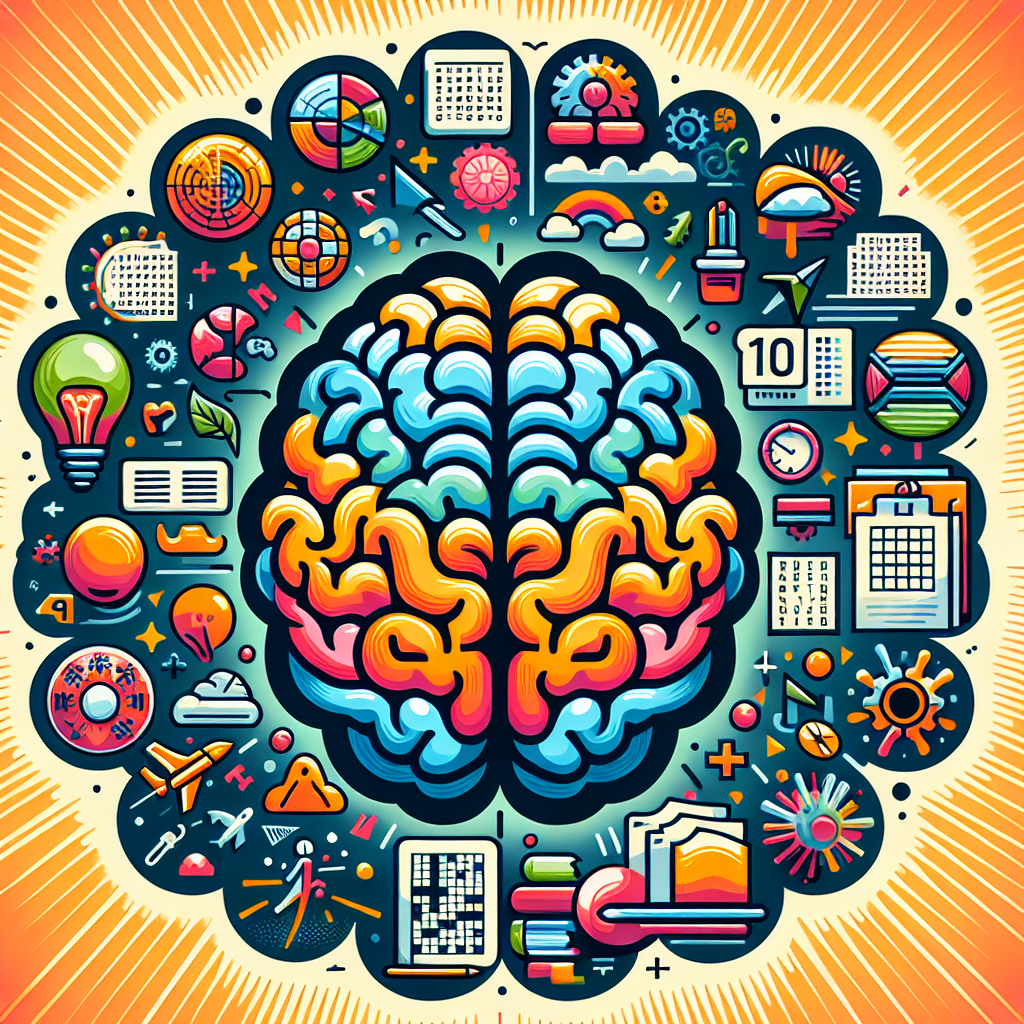
Introduction: Importance of Brain Exercises
In a world filled with constant mental stimulation, it is essential to prioritize brain health and cognitive function. Just like physical exercise strengthens the body, engaging in brain exercises helps improve memory, enhances focus, and boosts overall mental agility. Regularly challenging the mind not only sharpens cognitive abilities but also promotes neuroplasticity, the brain’s ability to adapt and reorganize itself. This guide explores ten effective brain exercises that can help keep your mind sharp and agile.
Exercise 1: Memory Recall Games
Memory recall games can be both fun and beneficial for cognitive strength. Start by memorizing a list of words, numbers, or images, then test yourself by recalling them later. Apps and online games like “Eidetic” or “Lumosity” can enhance this experience, providing structured memory challenges to boost your recall skills.
Exercise 2: Quick Math Challenges
Quick math challenges stimulate brain function and enhance problem-solving skills. Set a timer and solve basic arithmetic problems or use online math quiz platforms. Challenges could include calculating the sum of two-digit numbers or solving simple equations. Increasing the complexity over time will further enhance your mathematical agility.
Exercise 3: Word Association Tasks
Engaging in word association tasks fosters both creativity and verbal fluency. Start with a single word, and then quickly write down or say the first word that comes to mind. This exercise not only enhances your vocabulary but also helps in developing quick thinking and brainstorming abilities.
Exercise 4: Visualization Techniques
Visualization techniques promote mental imagery and creativity. Close your eyes and visualize a scene, an object, or even a simple task. Try to incorporate as many details as possible—colors, sounds, and feelings. This practice can enhance memory retention and improve concentration by fostering a strong mental representation of concepts.
Exercise 5: Breathing & Mindfulness Focus
Breathing exercises and mindfulness practices enhance mental clarity and reduce stress. Spend a few minutes focusing on your breath: inhale deeply, hold for a few seconds, then exhale slowly. This exercise not only calms the mind but also heightens your awareness, allowing for improved focus in cognitive tasks.
Exercise 6: Pattern Recognition Puzzles
Pattern recognition is crucial for critical thinking and problem-solving. Engage in activities such as Sudoku, crosswords, or logic puzzles. These exercises require you to recognize patterns and solve problems, promoting analytical thinking and boosting cognitive flexibility.
Exercise 7: Opposite Hand Writing
Writing with your non-dominant hand stimulates the brain’s activity and creates new neural pathways. Try journaling or drawing with your opposite hand daily. This exercise promotes coordination and can lead to increased creativity, as it forces you to think differently about tasks you typically perform with ease.
Exercise 8: Object Observation Tests
Object observation tests improve attention to detail and memory. Choose an everyday object and study it for a minute. Then, try to recall every detail about it—a size, color, texture, or even its functional properties. This exercise enhances observational skills and memory retention.
Exercise 9: Creative Storytelling Prompts
Creative storytelling encourages imaginative thinking and verbal skills. Utilize writing prompts, such as “a day in the life of a raindrop” or “if animals could talk.” Challenge yourself to develop a short story within a set time. This exercise not only bolsters creativity but also improves language skills and narrative structure.
Exercise 10: Mental Rotation Drills
Mental rotation drills require you to visualize objects in different orientations, enhancing spatial reasoning. Use online resources or apps that provide 3D puzzles or brain games focused on mental rotation. This exercise strengthens visual-spatial capabilities, which are essential for many real-world tasks.
Conclusion: Consistency is Key
Incorporating these exercises into your daily routine can significantly improve your cognitive abilities and overall brain health. The key to success lies in consistency; make these exercises a regular part of your life to experience long-term benefits. Remember, just as muscles grow stronger with regular workouts, your brain too thrives on continuous challenges and stimulation. So let’s get started—your brain is waiting!


